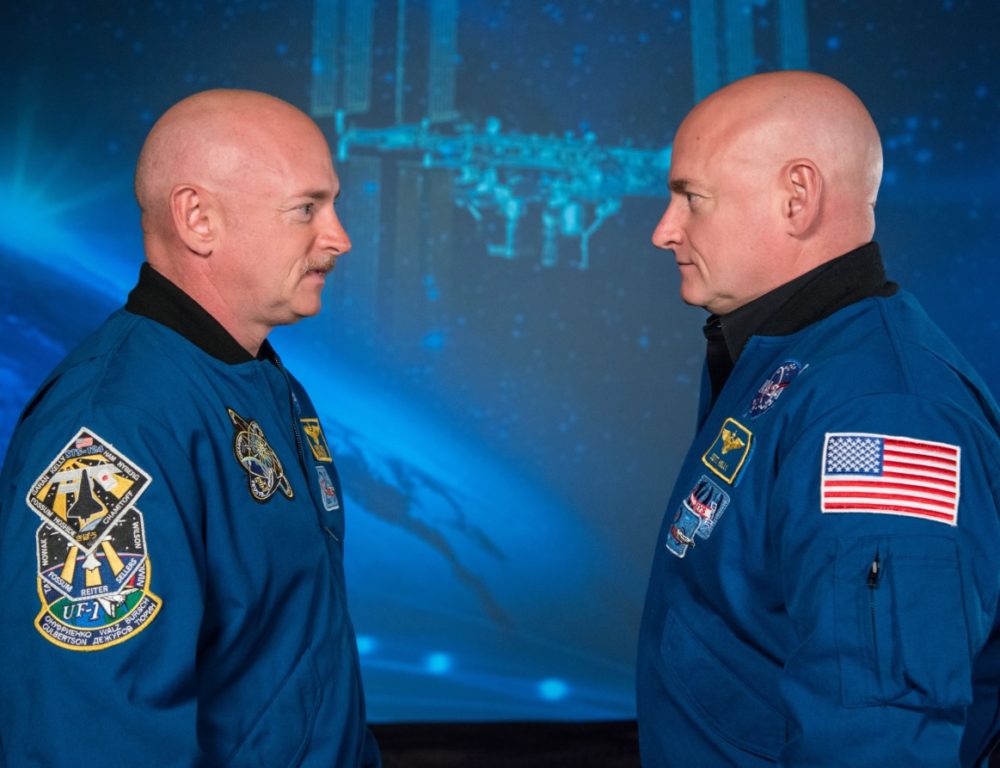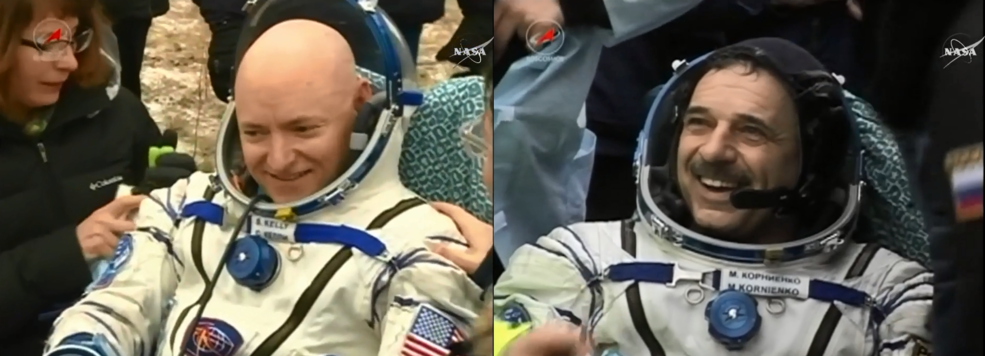
Listen
From March of 2015 to March of 2016, American astronaut Scott Kelly lived aboard the International Space Station, spending a few weeks shy of a year in space. He, along with Russian cosmonaut Mikhail Korniyenko, did so as part of a research project that studied the effects of long-term spaceflight on the human body.
An added element to this research was the fact that Scott had an identical twin brother, Mark, who also happens to be a retired astronaut.

This provided a unique opportunity to study changes in DNA between a sibling who stayed on earth versus a sibling who spent the year in space. This so-called Twins Study published results this year with some interesting findings, which were presented at Space Center Houston on Monday.
Some of the conclusions of the study:
The immune system appears to behave appropriately in space after Scott reacted normally to vaccines administered before, during, and after the mission; cognitive performance is largely unchanged in space, though Scott's cognitive speed and accuracy did decrease temporarily upon returning to Earth, which may have been due to readjusting to the gravity here; and Scott's gut bacteria were significantly different during his time in space, possibly due to a different diet, but potentially because of other space-specific factors.
In the audio above, we spoke with John Charles, the former Chief Scientist of the Human Research Program at Johnson Space Center (and now Space Center Houston's Scientist in Residence), as well as Susan Bailey, professor of radiation cancer biology and oncology at Colorado State University who studied Scott and Mark's telomeres, about the study and what its findings imply for the future of long-term spaceflight.

 73 °F
73 °F